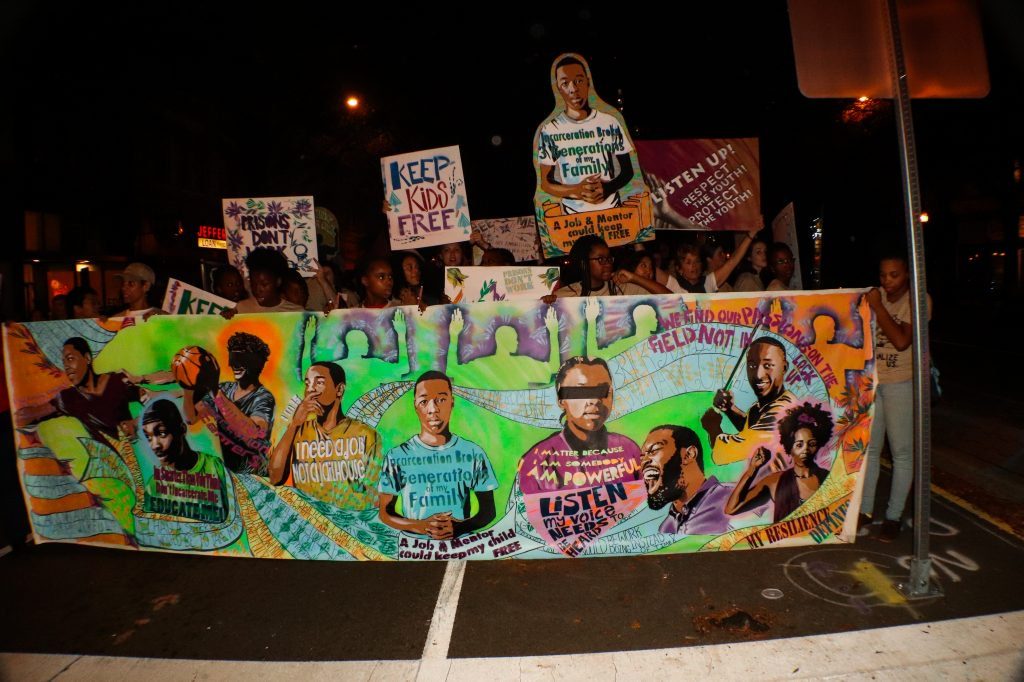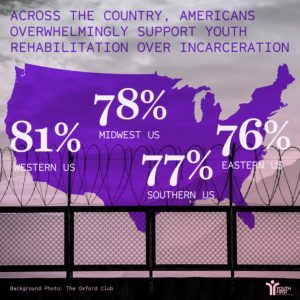
For many years, we have known that detention and incarceration cause long-term harm to the kids who experience it. No matter where a child is born, that child should not be used as a political bargaining chip, and traumatized in the process. No kids should be imprisoned. That’s why our initiative, Youth First, support locally led grassroots campaigns across the country to close youth prisons and invest in community services and opportunities for youth.
Family separation has been used as a tool of political control and terror in the United States since its’ inception. Many states’ first youth prisons were created just after slavery was outlawed in that state; the connection was explicit. The short film Jim Crow Juvenile Justice explores much of this history.
In recent years, more and more lawmakers have realized that youth prisons are antiquated, ineffective, expensive, and cruel. They cause far more harm than they were supposedly intended to prevent. That’s why states like Kansas, Connecticut, and Virginia have all closed youth prisons in the last few years — but there is still much work to do in these states and across the country to move away from systems that subject children to unimaginable cruelty behind locked doors.
Taking children away from their families, or institutionalized with or without them, causes lasting trauma — lifelong wounds that have both mental and physical effects. The science on this is clear: these childhood experiences create adults who are less able to regulate their emotions, less able to succeed at work or school, struggle to build healthy relationships, suffer from physical illnesses like heart disease, and die younger. That’s why the National Association of Pediatric Nurse Practitioners, the American Medical Association, the American Psychological Association, the American College of Physicians, and many other doctors and behavioral scientists have demanded the Trump administration end these cruel practice.

Even worse, these situations breed child abuse. These children are intensely vulnerable: in a strange place, often with language barriers, traumatized, with no family present or lawyer to advocate for them, afraid of permanent separation from their parents or deportation, even afraid they might get their parents punished if they complain — something workers threatened to migrant children this week. In those circumstances, abusers have free rein. It’s happening to migrant kids in Virginia and potentially other detention facilities and youth prisons in that state, and it happens to youth in juvenile justice systems across the country. The recent scandals at the Wisconsin and Florida’s youth prisons highlight this. The best way to protect children is to reunite them with their parents, in home environments not locked facilities. Family detention is not a solution either; A cage is still a cage, and these kids and parents are still intensely vulnerable to mistreatment in such environments.
This recent crisis, caused by the Trump administration, underscores the deep sentiment across the country that children belong with their families and not in cages. That sentiment is backed up by public opinion research that shows that the public believes that we should move away from incarcerating kids and instead invest in community-based services and opportunities for children to grow and thrive at home in their communities.

It is also an opportunity for advocates in the youth justice and immigrant rights communities to join hands in ending policies of the Trump Administration and states across the country that rely on caging children exacting pain and long-term, serious and negative consequences for these children and their families.




